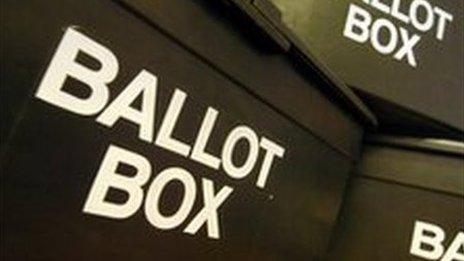2019 elections: Legal challenge to extend voter ID checks
- Published
- comments
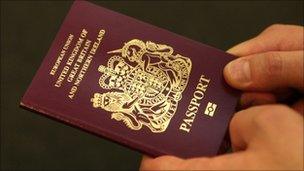
A passport or driving licence will be needed for some voters to prove their ID
Plans to make more English voters prove their identity face a challenge in court.
An Essex man is crowdfunding for a legal case, as he does not have photo ID, and would not be able to vote.
Five English councils took part in May 2018 trials, and 11 are due to hold a range of checks in the 2019 elections.
The government said the requirements were a "common-sense next step" in electoral security.
In 2016 there were 44 allegations of impersonation - casting a vote in someone else's name - up from 21 in 2014.
On Tuesday, Neil Coughlan, who lives in Braintree, one of next year's trial areas, started a bid to raise £10,000 to launch a legal challenge, which would mean the next round of pilots could only take place after legislation and a parliamentary debate.
The Electoral Commission said 3.5 million potential voters in England, Scotland and Wales do not have any form of photo ID, with 11 million not owning a passport or photographic driving licence.
Voters in Northern Ireland have been required to offer paper ID to vote since 1985 and photo ID since 2003.
'Could be unlawful'
Labour's shadow minister for voter engagement and youth affairs, Cat Smith, said: "This legal challenge is vital for defending British democracy and Labour is throwing our support behind it.
"We commend Neil for standing up for our democracy against a government that is determined to make it harder for people to vote.
"The Tories' voter ID plans are unnecessary, undemocratic and unpopular.
Ahead of the 2018 local elections, Theresa Villiers and Cat Smith looked at the effect of new photo ID requirements.
"After the fiasco we saw at this year's local elections, with hundreds of legitimate voters turned away from polling stations, it's a disgrace that the Tories are ploughing on with proposals that could be unlawful."
After announcing the next trial areas, Constitution Minister Chloe Smith, said: "We want people to have confidence that our elections are safeguarded against any threat or perception of electoral fraud.
"People are already required to show ID to pick up a parcel from the post office, rent a car, or apply for benefits, and this is a common-sense next step to securing the integrity of our elections."
But the Electoral Reform Society (ERS) said legal advice in June showed the trials could be unlawful as they were imposed by ministers, and not through Parliament.
'Stop wasting money'
Dr Jess Garland, ERS director of policy and research, said: "There is overwhelming civil society opposition to the government's plans to put up barriers to voters. Now it appears that the government may have to defend their disastrous proposals in the courts.
"With millions of people lacking photographic ID, it is no surprise the government are potentially facing a legal challenge to their 'show your papers' policy.
"Ministers should stop wasting time and taxpayers' money pursuing these dangerous and undemocratic plans, and focus on the real democratic problems Britain faces instead, not least the 'Wild West' in online campaigning."
In May 2018, voters in Bromley, Gosport, Swindon, Woking and Watford were in the trial areas, with around 350 people initially denied a vote, although some later returned with the correct ID.
Reporter Greg Dawson looked ahead to the need for ID in one 2018 trial area
Last month, the government announced that 11 areas in England would take part in trials in the local elections in May 2019.
Voters in Pendle, East Staffordshire and Woking will have to show photo ID, those in Ribble Valley, Broxtowe, Derby, North Kesteven and Braintree will have to bring either one form of photo ID, or two forms of non-photo ID.
Mid Sussex, Watford and North West Leicestershire voters will have to bring polling cards, while postal voters in Peterborough and Pendle will have additional guidance in postal vote packs.
- Published22 May 2018
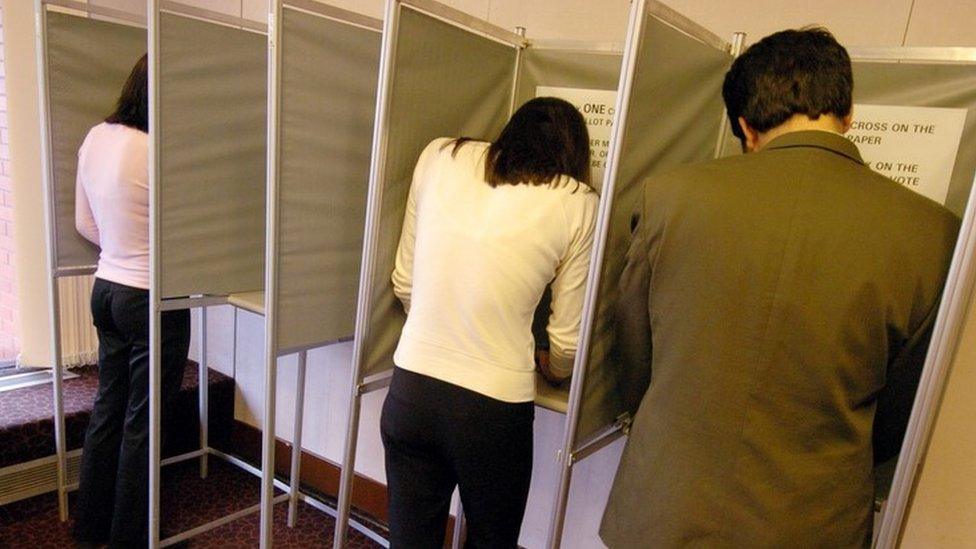
- Published2 February 2014
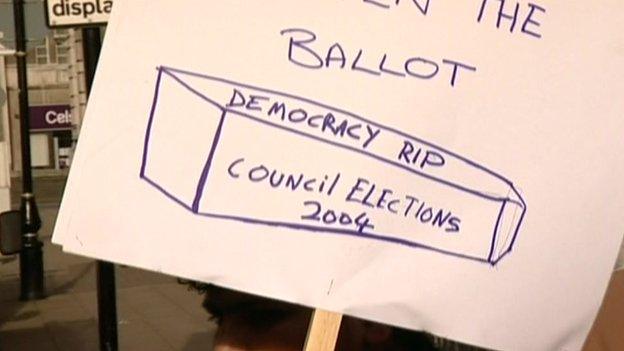
- Published16 September 2017
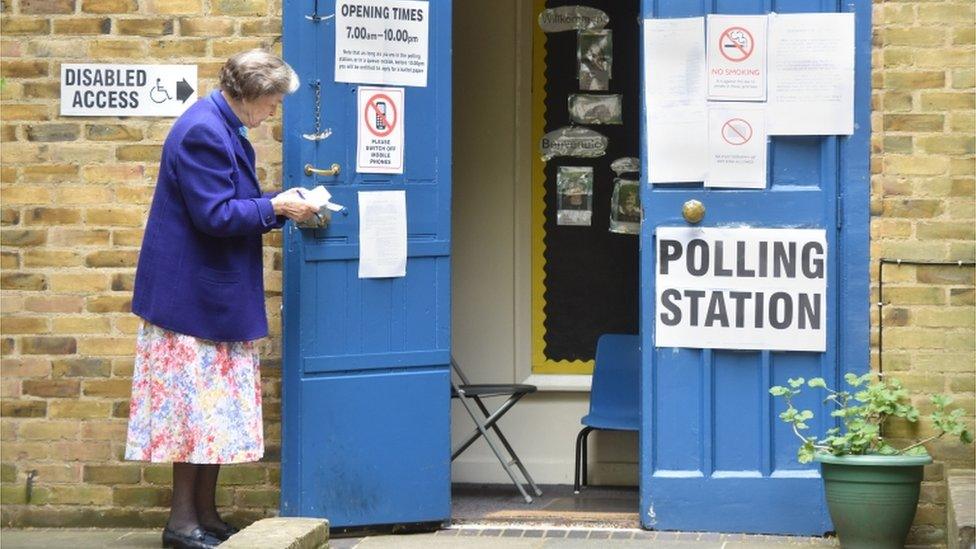
- Published23 April 2018
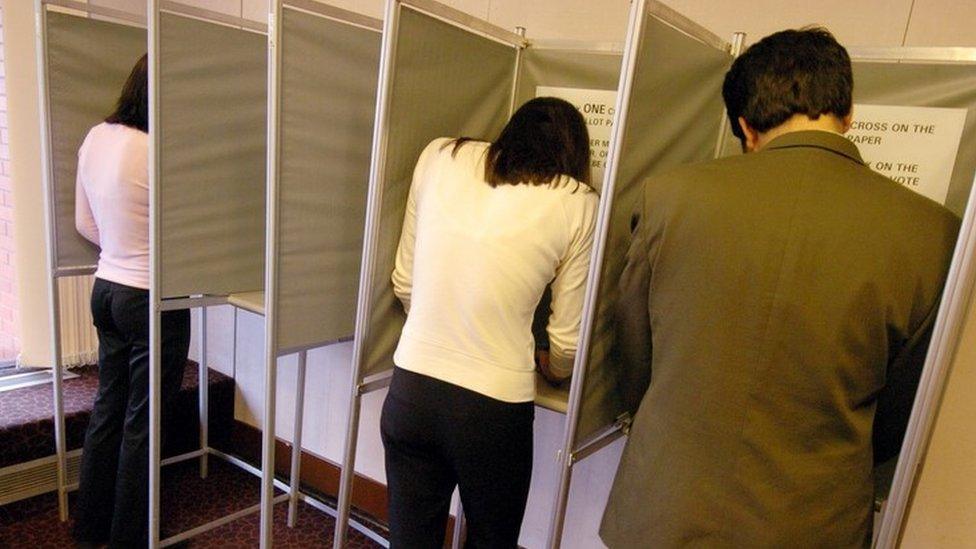
- Published8 January 2014
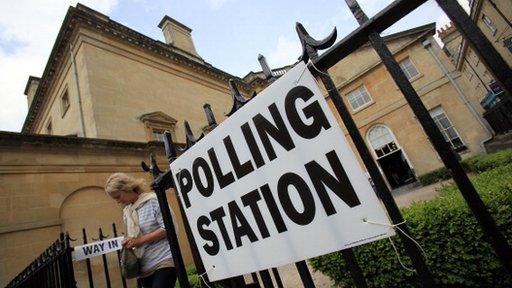
- Published10 July 2012
